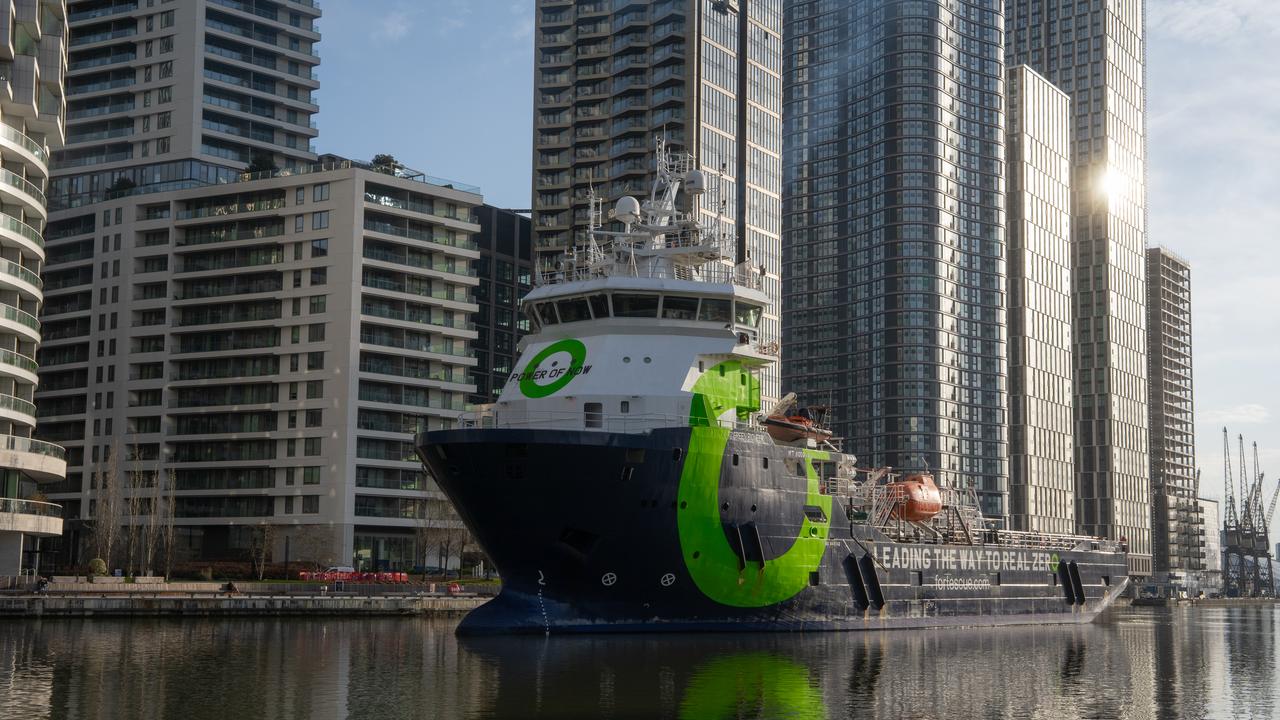AGL-backed solar thermal scheme nears start-up
RayGen’s Victorian storage project uses mirrors to capture sunlight, with energy stored in water reservoirs and converted to electricity through a turbine.

Renewable energy operator RayGen, backed by AGL Energy and oil giant Chevron, has flagged a six-month delay delivering full capacity from its solar thermal project in Victoria due to supply snags as it plans to roll out its technology across sites in South Australia and Victoria.
RayGen has built a small storage project in the Victorian town of Carwarp, using mirrors to capture sunlight with energy stored in water reservoirs and converted to electricity through a turbine.
While the 4 megawatt, 50 megawatt hour project is now connected to the grid and supplying electricity to the national electricity market, RayGen said supply disruptions meant the project would not be fully operational until the first quarter of 2023.
It blamed international supply chain disruptions for delays with the site’s thermal storage system with a cold water pumping system remaining stored in Shanghai due to Covid-19 lockdowns, while Russia’s invasion of Ukraine disrupted shipping for component within Europe.
“RayGen is excited to be delivering renewable energy to the West Murray Grid from our flagship site in Carwarp today,” RayGen chief executive Richard Payne said. “Global supply disruptions have been a challenge not just for RayGen, or even the entire energy industry, but any company dealing with global logistics.”
The company was founded in 2010 by Dr John Lasich, creating a new technology that captures the power of the sun from a field of automatically controlled mirrors, amplifies the energy 650 times and then directing the concentrated light into a central tower where PV Ultra modules convert it into electricity.
RayGen has picked up a string of high profile partners including AGL, Chevron’s technology arm, Equinor, Photon Energy Group, Schlumberger New Energy and the Australian Renewable Energy Agency.
It signed a deal with AGL to construct a small-scale solar thermal storage project at its Liddell coal site in NSW, as the plant edges closer to shutting down at the end of this summer.
While it remains in a planning phase, the RayGen boss said more work needed to be done on investigating the site after completing geotech work on location.
“We’ve produced a feasibility report and we’re now evaluating the next steps on that from a connection point of view,” Mr Payne said. “It’s a challenging site from an infrastructure point of view and getting a huge system on there but we are looking to certianly develop that site and deploy a system on there.”
RayGen is also working on a large scale project in South Australia with the Netherlands’ Photon Energy where it plans a 300MW, 3.6 gigawatt hour solar and storage facility, the biggest scheme of its type in the world.
Investors and developers are increasingly focusing on the need for storage and ‘deep storage’ technologies to back up a move to greater sources of renewable energy as coal plants retire. Mr Payne said having storage that can last days or even weeks would be critical to ensure a smooth transition to clean energy.
“We can basically store that energy for days, weeks, months, even across seasons. Because we can absorb other renewable energy sources, it means that it fits very much into that into this sort of the requirement for delivering the gigawatts of storage and hundreds of gigawatt hours of storage needed to actually transition. It fits very well into that,” Mr Payne said.




To join the conversation, please log in. Don't have an account? Register
Join the conversation, you are commenting as Logout